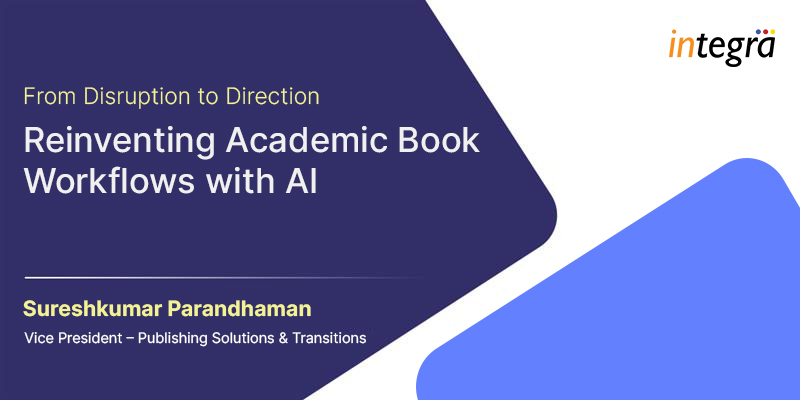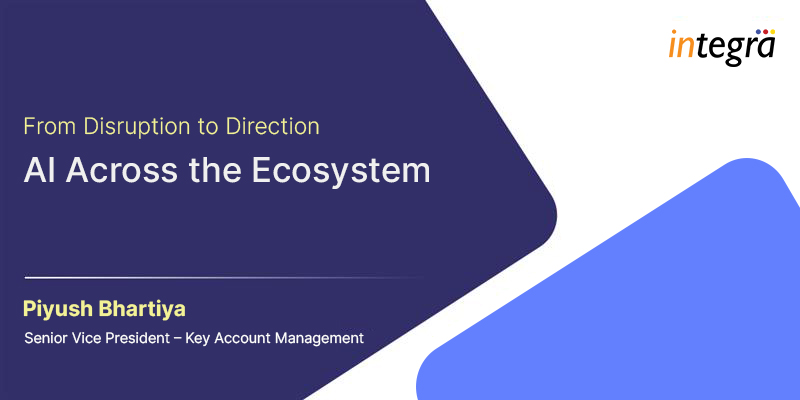A Beginner’s Guide to Optimizing AI in Your Publishing Workflow

Whether it is Forbes, which has doubled its monthly visitors after unveiling Bertie, or Bloomberg, where a third of published content is said to be produced by Cyborg, diverse applications of AI are revolutionizing the digital publishing space. Globally, AI penetration in the publishing industry is deepening and newer avenues of application are being explored almost every day.
Yet, there remains massive untapped potential that can transform academic and digital publishing at scale. But the potential of AI for publishing can only be unlocked when publishers move from the single dedicated use of the technology to implementing it as an enabler to streamline and optimize the entire publishing process.
Analyzing Current AI Use Cases in Publishing
AI is performing significant tasks to expedite manuscript movement from submission to publication.
Grammar Checks
One of the most popular applications of AI in academic writing is as a grammar checker. Grammar checkers are trained in diverse languages to facilitate the production of high-quality content right from the authoring stage.
First Review of Manuscripts
One of the biggest hurdles to being published is getting past the first review stage. This is often extremely time-consuming, as reviewers and editors are all occupied with “more relevant” publishing activities. AI-powered tools conduct the first analysis, accelerating the initial TAT of the manuscript. They accept/reject the content based on research quality and completeness, and its alignment with the journal’s specialization. Additionally, these first reviews streamline publishing workflows by evaluating the extent of editing required, based on language quality and research adequacy.
AI Drives Over 50% Reduction in TAT
AI has the potential to massively expedite publishing workflows. One of the largest academic publishers worldwide set new benchmarks of reducing the SLA of first reviews from 5 days to 2 days and overall production time from 24 days to 13 days using Integra’s custom AI-powered solutions.
Data is King: The Crux of Advanced AI Integration
The powerhouse propelling AI advancement is data. AI models need to be trained and tested on large datasets for quality, accuracy, and speed. However, data collection poses a significant challenge to effective AI integration in the publishing industry, along with many others.
- The biggest challenge is shifting the mindset from considering AI integration as a destination to being a process that evolves with the business. Technology, consumer behavior, and research are always growing, and so should AI models in the scholarly publishing industry.
- Data collection, clean-up, and construction for appropriate use by AI models can be time- and cost-intensive.
- Without adequate publishing workflow management, AI models for editing and reviewing work in isolation from marketing and consumer feedback.
- Lack of technical infrastructure to facilitate scalability and flexibility while ensuring business continuity.
Optimizing AI for Publishing-Specific Challenges
The instruments for effective AI integration are sound cloud-based data management and clarity and alignment of goals with integration KPIs. Using an advanced publishing workflow platform can dramatically impact:
Manuscript Evaluation
Integrating AI models with market data, peer and customer feedback loops, and industry benchmarks can facilitate predictive analysis. ML models can assess the manuscript to predict its chances of acceptance, citation, sharing, and quality of feedback. These insights can guide further operations and workflows in the publishing cycle.
Content Personalization
Assessing user behavior, preferences, and patterns can be instrumental in offering personalized content to readers, improving reader engagement and experience. AI-driven content customization strategies can facilitate content recommendations and clickability of a publication.
Marketing Campaigns
One of the oldest applications of analytics is marketing. Analysis of the performance of a published piece, and consumer feedback on the piece can determine the future direction of marketing campaigns. However, it is crucial to maintain compliance with privacy guidelines, which can also be automated with advanced publishing workflow platforms.
Process Improvements
The best part about cloud-based publishing workflow management platforms is that they enable the collation of data to evaluate efficiency and refine ML algorithms to optimize all other activities of the publishing cycle. This facilitates continuous evolution of the cycle, fostering scalability and flexibility throughout the process.
Leverage AI-Driven Optimization
The most efficient way to unleash the potential of AI is to partner with a technology provider with expertise in transforming publishing workflows. Talk to the experts at Integra to understand your AI and technology and get support for transitioning to cloud-based publishing workflow automation with minimal disruption to business operations.
Recent Blogs

Research Integrity vs. Publication Integrity: Clarifying Responsibility in Scholarly Publishing

From Disruption to Direction: Reinventing Academic Book Workflows with AI


